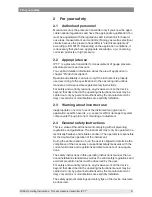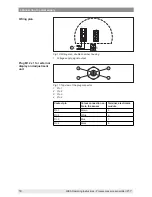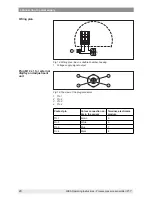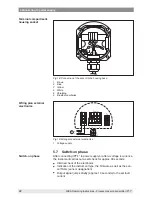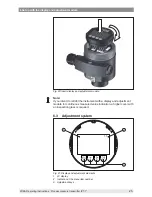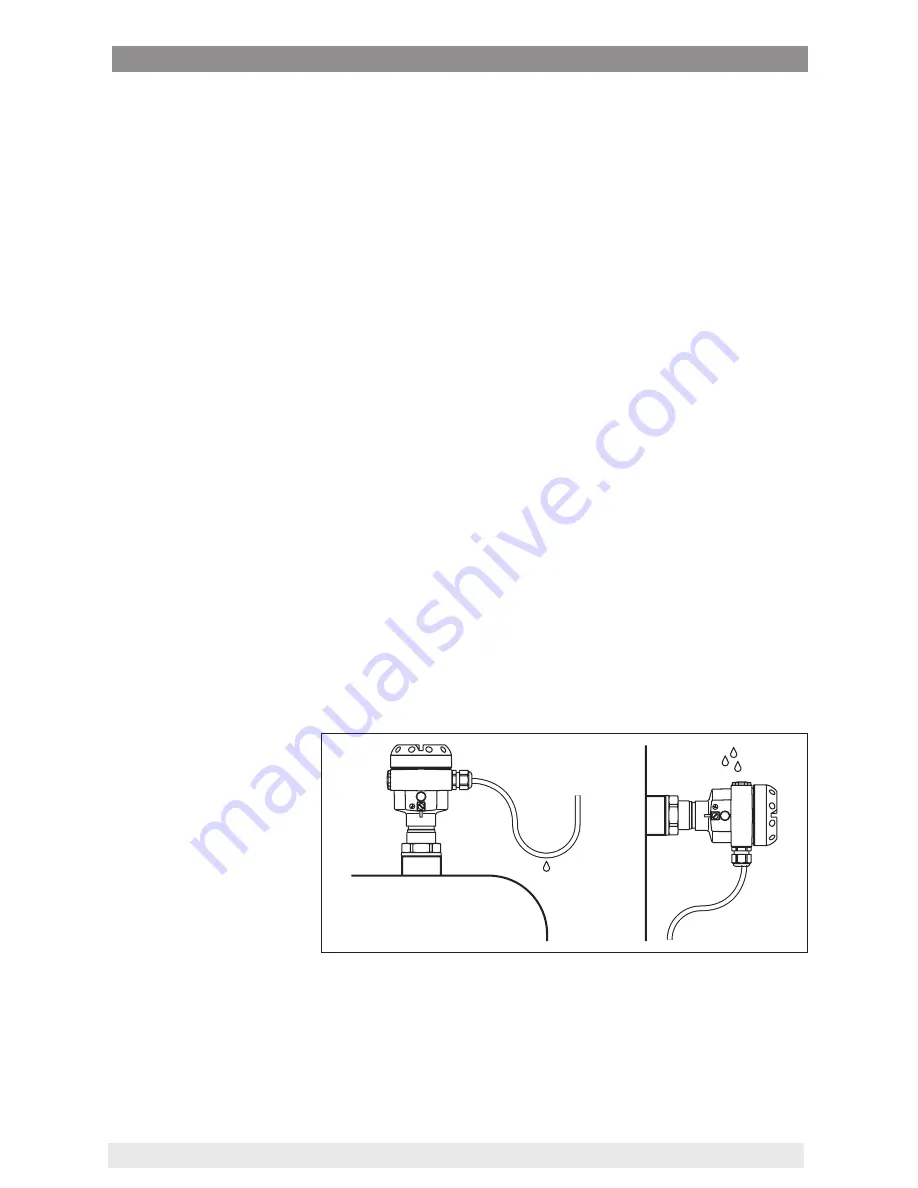
10
4 Mounting
WIKA Operating Instructions - Process pressure transmitter IPT-1*
4 Mounting
4.1 General instructions
Make sure that all parts of the instrument coming in direct contact
with the process, especially the sensor element, process seal and
process fitting, are suitable for the existing process conditions, such
as process pressure, process temperature as well as the chemical
properties of the medium.
You can find the specifications in chapter "
Technical data
" and on the
nameplate.
To protect the diaphragm, the process fitting is covered by a protec
-
tive cap.
Remove the protective cap just before installation so that the dia-
phragm will not get damaged. It is recommended to keep the cap and
use it again later for storage or transport.
Select an installation position you can easily reach for mounting and
connecting as well as later retrofitting of a display and adjustment
module. The housing can be rotated by 330° without the use of any
tools. You can also install the display and adjustment module in four
different positions (each displaced by 90°).
Use the recommended cables (see chapter "
Connecting to power
supply
") and tighten the cable gland.
You can give your instrument additional protection against moisture
penetration by leading the connection cable downward in front of the
cable entry. Rain and condensation water can thus drain off. This ap
-
plies mainly to outdoor mounting as well as installation in areas where
high humidity is expected (e.g. through cleaning processes) or on
cooled or heated vessels.
Fig. 2: Measures against moisture ingress
The ventilation of the electronics housing as well as the atmospheric
pressure compensation for the measuring cell are realised via a filter
element in the area of the cable gland.
Suitability for the process
conditions
Diaphragm protection
Installation position
Moisture
Ventilation and pressure
compensation





